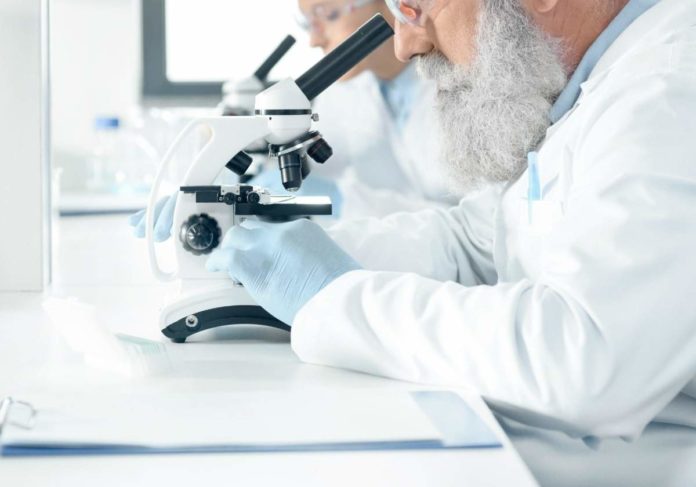Indo-Canadian Research WfW
The notification for the DBT India, Indo-Canadian Research On Wealth from Waste Call for Proposals has been released. Interested candidates can check out all of the details on the objective, purpose, background, criteria for applications, contact details and times all detailed below:
This call expires in :
Funding Opportunities for Indo-Canadian Research
On Wealth from Waste
BACKGROUND
According to the World Health Organization (WHO), the global pressures of
population growth, urbanization, water shortages, and climate change impacts are
increasing the agricultural demands for treated waste as a steady source of water
and nutrients.1 In addition, freshwater, nutrients, energy, and chemical compounds
recovered from treated waste have found application in areas such as irrigation,
horticulture, forestry, and industrial water supply. Further research is underway to
explore mining waste for other valuable components that could be reused and
recovered in other industries.
Collaborations between academia, government, and industry to recover water,
nutrients, energy, and valuable chemicals from waste have the potential to yield
commercial successes and be scaled up to global markets.
PROPOSALS:
IC-IMPACTS and the Department of Biotechnology (DBT) invite researchers
to submit proposals for projects that can be completed in two years (or less
focus on extracting Wealth from Waste.
Your proposal should offer biotechnology driven research-based solutions,
reflect cost and space efficiencies required for deployment in cities such as Delhi,
Kanpur, Varanasi, etc. or in locations with similar geographies.
Central to the successful proposal will be demonstrating a scalable technology
that can be developed as a commercially viable option to extract wealth from
wastewater and be applicable to rejuvenating polluted water bodies such as the
River Ganga in India.
This call for proposals has two parts: a research component and a
demonstration component.
Funds requested for Part 1 (research) of this proposal must be no more than about 40% of
the overall budget requested, with the remaining 60% allocated to Part 2 (demonstration).
Part 1: Research: The research component should enable the extraction of reusable
water, nutrients, energy, and valuable chemicals from waste.
Wastewater is being increasingly recognized as a source for reusable water, nutrients, energy, and valuable chemicals. Reuse of treated wastewater has been adopted for irrigation, industrial water supply, recreation, landscape enhancement, as well as indirect potable use. Being essential nutrients for agriculture, horticulture, and forestry, recovered phosphorus and nitrogen compounds for fertilizer production have been extensively investigated via struvite precipitation, biological capture, and membrane separation processes.
The carbon matter in wastewater has also been recovered as a bioenergy source. For instance, harvesting of biogas as a byproduct of anaerobic wastewater treatment has been practiced for decades. Biochar and bio-oil conversion from wastewater sludge through hydrothermal liquefaction or pyrolysis is an active area of research. Moreover, mining of wastewater microbiomes enables the production of bioproducts of industrial, high
therapeutic, and environmental values (e.g., alcohols, fatty‐acids, or polyesters, which can be used as a feedstock of high‐value chemicals or biofuels, antibiotics, and biopesticides). In addition, the temperature difference between the wastewater and the environment renders wastewater a promising source of thermal energy. Use of wastewater as a heat source or sink to supplement the energy expenditure for heating or cooling in residential areas has been demonstrated.
Similarly solid municipal waste is also being gradually accepted as a source of
biofuels (such as liquid, gaseous and solid fuels); bulk and platform chemicals
such fats and oils, volatile fatty acids and glycerol; high-value products such
as fibre products, organic acids, metals, plastics, chitin/chitosan and biofertilizer and other materials such as animal fodder, novel microbes, compost/fertilizer and construction materials made from recycled glass and cement.
Part 2: Demonstration: The demonstration component may be funded as a follow‐up
to a project in Part 1 or concurrently with Part 1.
Biotechnology driven technology demonstrations should rank high on the Technology Readiness Level2 Scale and enable the extraction of treated water, nutrients, energy, and valuable chemicals from waste. Central to the successful execution of the proposed project will be demonstrating a scalable technology that can be developed as a commercially viable option to extract wealth from waste and be applicable to rejuvenating polluted, sites and/or
water bodies.
KEY CRITERIA FOR A SUCCESSFUL APPLICATION:
Successful applications will be relevant to Indian and Canadian ecosystems and
conducive to commercialization, particularly in remote and low-resource settings in India and Canada. Successful applications will also include:
- Funds requested for the research portion of a proposal must be no more than
about 40% of the overall budget requested, with the remaining 60% allocated
to the demonstration portion. - We are keen to see biotechnology solutions that develop and operate pilots or
prototypes to demonstrate the developed technology. - Strong potential to scale up research and build rapid demonstration capabilities that can be applied to polluted, sites and/or water bodies.
- Demonstration projects with TRL 6 or above, thereby reflecting a significant potential for successful commercialization of research and demonstration outcomes.
- Availability of strong industry partnership and/ or Indian urban or other local government bodies to assist with commercialization of the project. Please submit a letter of support from the industry/ local body partner with details of their potential cash-funding commitment.
- Achievable research-based deployment at a suitable location in India, within
the two years of the project life cycle, concurrent with Part 1 (research) or as a
follow up to Part 1 (research). - Provide training opportunities for Highly Qualified Professionals (HQP), particularly master’s and doctoral students as well as postdoctoral fellows.
ELIGIBILITY:
- All Canadian researchers eligible to receive funding from IC-IMPACTS and tri-council agencies in Canada are eligible to apply as Principal Investigators
from Canada along with an eligible Indian Principal Investigator. - All Indian researchers generally eligible to apply for DBT funding opportunities
are eligible to apply as Principal Investigators from India.
APPLICATION INSTRUCTIONS:
• Proposals must be written in the English language and clearly marked as DBT: IC-IMPACTS proposals and have to be submitted to both IC-IMPACTS and to DBT in parallel in accordance with the proposal preparation requirements of each side, respectively.
• While conforming to the different respective regulations, forms and submission procedures of the two agencies, the project descriptions must be identical in their substance. As the projects must be fully integrated IndoCanadian research projects, it is expected that the proposals must contain detailed information about the mode and essentiality of collaboration between the Indian and the Canadian side.
• Canadian researchers have to submit the proposals electronically via online
IC-IMPACTS’ application portal.
• Indian researchers have to submit the proposals as a single consolidated PDF
file by e-mail to [email protected] in stipulated proforma (see links given below)
REVIEW PROCESS FOR THE EVALUATION OF APPLICATIONS:
- Joint projects will be evaluated separately by DBT and IC-IMPACTS within the
respective national competitions on the basis of the projects’ scientific
merit/quality, the justification for scientific-collaboration and the qualifications
as well as the compatibility of the participating team members. - The results of the review process will be shared between the agencies.
Funding will be granted for only those proposals where both DBT and ICIMPACTS recommend funding. Unilateral funding of only one part of a joint
the initiative will not be possible.
FURTHER INFORMATION:
To submit a proposal to IC-IMPACTS:
All documents and forms required for a project application are accessible at
www.ic-impacts.com
To submit a proposal to DBT:
Please follow the
a. Modalities of Participation and Funding for Indian Investigator(s)
b. DBT’s Proposal submission proforma
CONTACTS:
- Contact person at the IC-IMPACTS, Vancouver, Canada:
Mr. Shapoor Marfatia,
Chief Operations Officer
[email protected] - Contact person at the DBT, New Delhi, India:
Dr. Amit Parikh
Scientist E
[email protected]
TIMELINE:
• The launch of call on IC-IMPACTS and DBT websites: 27 February 2019
• Project Submission Ends: 13 May 2019
• The announcement of Successful Projects: June 2019
• Project(s) is expected to start in August-September 2019 and should
complete latest by the end of July-August 2021.
Important Links:
- DBT-IC-IMPACTS_WfW Call_Proposal Submission Proforma Call
- DBT-IC-IMPACTS WfW Call Modalities of Participation and Funding
- DBT-IC-IMPACTS WfW Call
View Notification Below
Editor’s Note: call for proposals, DBT India Call for Proposals, Indo-Canadian Research On Wealth from Waste, Indo-Canadian Research, Canadian Research, DBT India Indo-Canadian Research, IC Wealth from Waste 2019. Check out the Newsletter, Podcast and all of our social media platforms for the latest in the Biosciences industry.

































